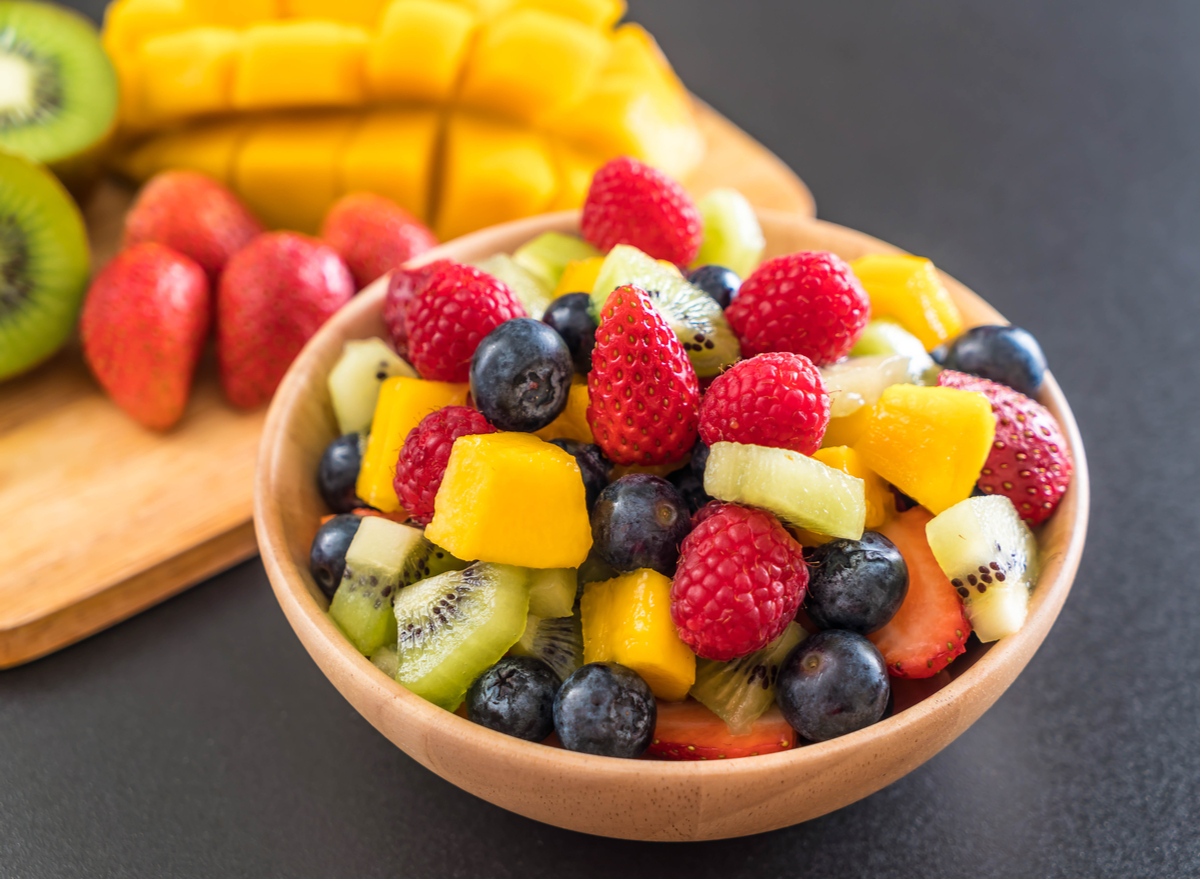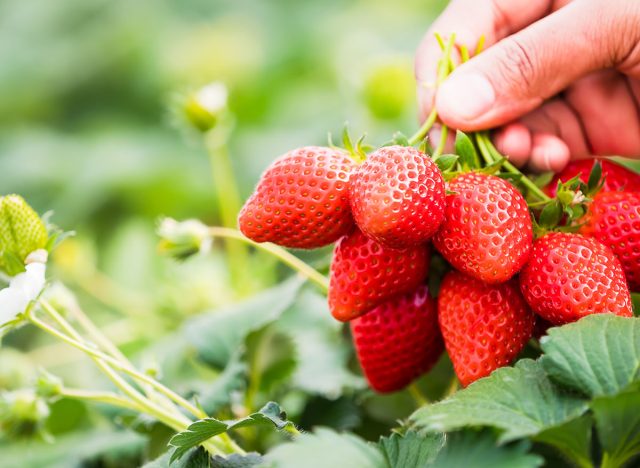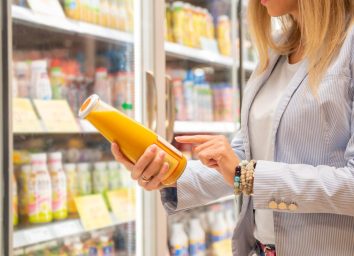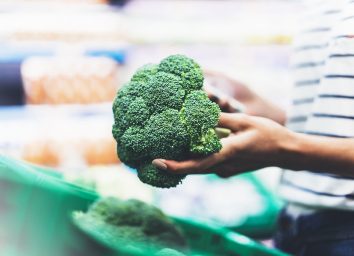This Popular Fruit Contains the Most Pesticides, New Report Says

If you’re a big fan of strawberries, you’re going to want to keep reading.
It’s widely known now that many conventional types of produce contain pesticides— but it’s best to buy organic if you can to steer clear of non-organic produce that’s part of the “dirty dozen.”
The dirty dozen is a ranking of the fruits and vegetables that contain the most pesticide residue. It classifies favorites like strawberries, spinach, kale, apples, grapes, cherries, peaches, and tomatoes as having a high level of pesticides.
Now, new research from the non-profit Environmental Working Group (EWG) says that a single strawberry may contain up to 23 different pesticides.

The dirty dozen list, published each year by the EWG, aims to guide shoppers toward making healthy choices for themselves and their families. We spoke with EWG healthy living science analyst Sydney Swanson to get insight into just how much pesticides are in our produce—and how they may be affecting our health.
“Exposure to pesticides has been linked to many adverse health effects, including hormone disruption, cancer, and brain and nervous system toxicity,” Swanson tells Eat This, Not That!. “A recent Harvard University study showed that eating produce high in pesticide residues may actually offset the beneficial effects of eating fruits and vegetables, like protection against cardiovascular disease and mortality. “
Currently, pesticide regulations are not strict enough to protect consumers, Swanson argues.
“Scientists have found that two or more pesticides in combination may cause greater toxicity than just one individual pesticide,” Swanson says. “This is alarming, as a single strawberry may have up to 23 different pesticides present on it.”
If you’d prefer to steer clear of pesticides in your produce, you may want to opt for what the EWG calls the “clean 15”—produce items that scored low on pesticide tests.
“Consumers hoping to limit their pesticide exposure may choose conventional versions of the produce on the clean 15 list and purchase organic versions of the produce on the dirty 12 list, when possible,” Swanson suggests. “It is important that shoppers eat enough fruits and vegetables, and by utilizing these helpful guides, they can ensure they are consuming enough produce while also reducing their pesticide load. “
To learn more about food safety, check out The #1 Reason Why You Need to Wash Organic Produce, New Report Says.









